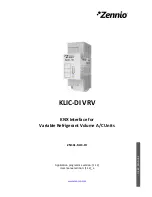
1.6 DXM Modbus Overview
The DXM uses internal 32-bit registers to store information. The processor's internal Local Registers serve as the main global
pool of registers and are used as the common data exchange mechanism. External Modbus device registers can be read into
the Local Registers or written from the local data registers.
The DXM, as a Modbus master or slave, exchanges data using the Local Registers. Modbus over Ethernet (Modbus/TCP)
uses the Local Registers as the accessible register data.
Using Action, Read/Write, and Threshold Rules allows you to manipulate the processor's Local Registers. The ScriptBasic
programming capabilities extends the use of Local Registers with variables to create a flexible programming solution for more
complex applications.
The processor's Local Registers are divided into three different types: integer, floating point, and non-volatile. When using
Local Registers internally, the user can store 32-bit numbers. Using Local Registers with external Modbus devices follows the
Modbus standard of a 16-bit holding register. Local Registers are accessible as Modbus ID 199.
Accessing the I/O base board and the LCD follows the same communication as an external Modbus device. Each device has
an ID number to uniquely identify itself. The I/O base board is Modbus ID 200 and the LCD is Modbus ID 201.
Figure 2. Overview of the DXM Modbus processor
Local Registers
(Modbus ID 199)
DXM Processor
Modbus Data
Traffic Control
Local Registers
Non-Volatile
Local Registers
Float
Local Registers
Integer
Gateway or MultiHop
(Slave ID 1)
LCD (Slave ID 201)
I/O Base Board
(Slave ID 200)
Action Rules
Read/Write Rules
ScriptBasic
Sure Cross
®
DXM100-Bx and DXM1000-Bx Wireless Controllers
www.bannerengineering.com - Tel: + 1 888 373 6767
11












































